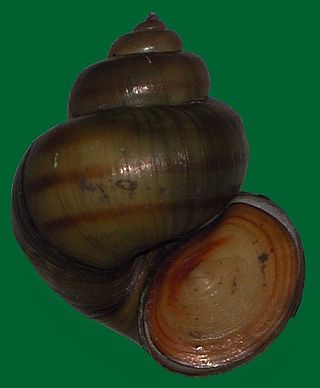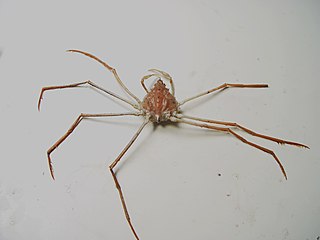
Willy Brandt was a German politician and statesman who was leader of the Social Democratic Party of Germany (SPD) from 1964 to 1987 and served as the chancellor of West Germany from 1969 to 1974. He was awarded the Nobel Peace Prize in 1971 for his efforts to strengthen cooperation in Western Europe through the EEC and to achieve reconciliation between West Germany and the countries of Eastern Europe. He was the first Social Democratic chancellor since 1930.

The American Tobacco Company was a tobacco company founded in 1890 by J. B. Duke through a merger between a number of U.S. tobacco manufacturers including Allen and Ginter, Goodwin & Company, and Kinney Brothers. The company was one of the original 12 members of the Dow Jones Industrial Average in 1896. The American Tobacco Company dominated the industry by acquiring the Lucky Strike Company and over 200 other rival firms. Federal Antitrust action begun in 1907 broke the company into several major companies in 1911.

The Japanese spider crab is a species of marine crab and is the biggest one that lives in the waters around Japan. At around 3.7 meters, it has the largest leg-span of any arthropod. The Japanese name for this species is taka-ashi-gani,, literally translating to “tall legs crab”. It goes through three main larval stages along with a prezoeal stage to grow to its great size.

Józef Brandt was a Polish painter, a representative of the Munich School, best known for his paintings of battles.

The National Theatre in Oslo is one of Norway's largest and most prominent venues for performance of dramatic arts.

Royat is a commune in the Puy-de-Dôme department in Auvergne-Rhône-Alpes in central France. As of 2019, its population was 4,359.

The Majoidea are a superfamily of crabs which includes the various spider crabs.

The Margarodidae or ground pearls are a family of scale insects within the superfamily Coccoidea. Members of the family include the Polish cochineal and Armenian cochineal and the original ground pearl genus, Margarodes. Beginning in 1880, a number of distinct subfamilies were recognized, with the giant coccids being the first. Although Maskell proposed a new family, many continued to regard the monophlebids as a mere subfamily for many years, and the Margarodidae classification continued to be polyphyletic through the 20th Century. Since then, taking the advice of Koteja several subfamilies and tribes have been elevated into their own families such as Matsucoccidae and Xylococcidae. The pared-down family of Margarodidae is monophyletic.

Brandt is an unincorporated community and census-designated place in southern Bethel Township, Miami County, Ohio, United States. Brandt is part of the Dayton Metropolitan Statistical Area. The population was 282 at the 2020 census. The Bethel Township Administration Facility is located in Brandt.

Viviparidae, sometimes known as the river snails or mystery snails, are a family of large aquatic gastropod mollusks, being some of the most widely distributed operculate freshwater snails.
Allan Morris Brandt is a historian of medicine and the Amalie Kass Professor of History of Medicine and Professor of the History of Science at Harvard University. He is an author of several books, including The Cigarette Century: The Rise, Fall, and Deadly Persistence of the Product that Defined America, which was a finalist for the Pulitzer Prize for General Non-Fiction.

Inachidae is a family of crabs, containing 39 genera:

Macropodia is a genus of crabs, belonging to the family Inachidae. It contains the following species:

Around 65 species of crab occur in the waters of the British Isles. All are marine, with the exception of the introduced Chinese mitten crab, Eriocheir sinensis, which occurs in fresh and brackish water. They range in size from the deep-water species Paromola cuvieri, which can reach a claw span of 1.2 metres, to the pea crab, which is only 4 mm (0.16 in) wide and lives inside mussel shells.

Macropodia rostrata, common names, the common spider crab, long-legged spider crab, long-legged crab, is a species of marine crab in the family Inachidae. The Macropodia Rostrata visually mimics many other types of small crabs with the exception of its long legs. By attaching algae to their thin legs, they can be confused with the stem of seaweed. This is both a defense mechanism and a predatory advantage, as unsuspecting fish will hide in seaweed beds from nearby predators. This behavior can be absent among larger crabs, and those that live at great depths like giant Japanese spider crabs.

Inachoididae is a family of crabs originally erected by James Dwight Dana in 1852. It was not recognised as a valid family until the early 1980s. Its members closely resemble those of the family Inachidae, and the Inachoididae could be recognised as a subfamily of that family.

Julus is a genus of millipedes in the family Julidae, containing the following species:

Tagea Brandt née Rovsing (1847–1882), was a Danish woman. The Tagea Brandt Rejselegat is named in her honor.
Macropodia formosa is a species of marine crab in the family Inachidae, found on seamounts and knolls in the west Indian Ocean, near St. Brandon and the Mozambican coast.
Macropodia tenuirostris, also known as the slender spider crab, is a species of marine crab in the family Inachidae.















